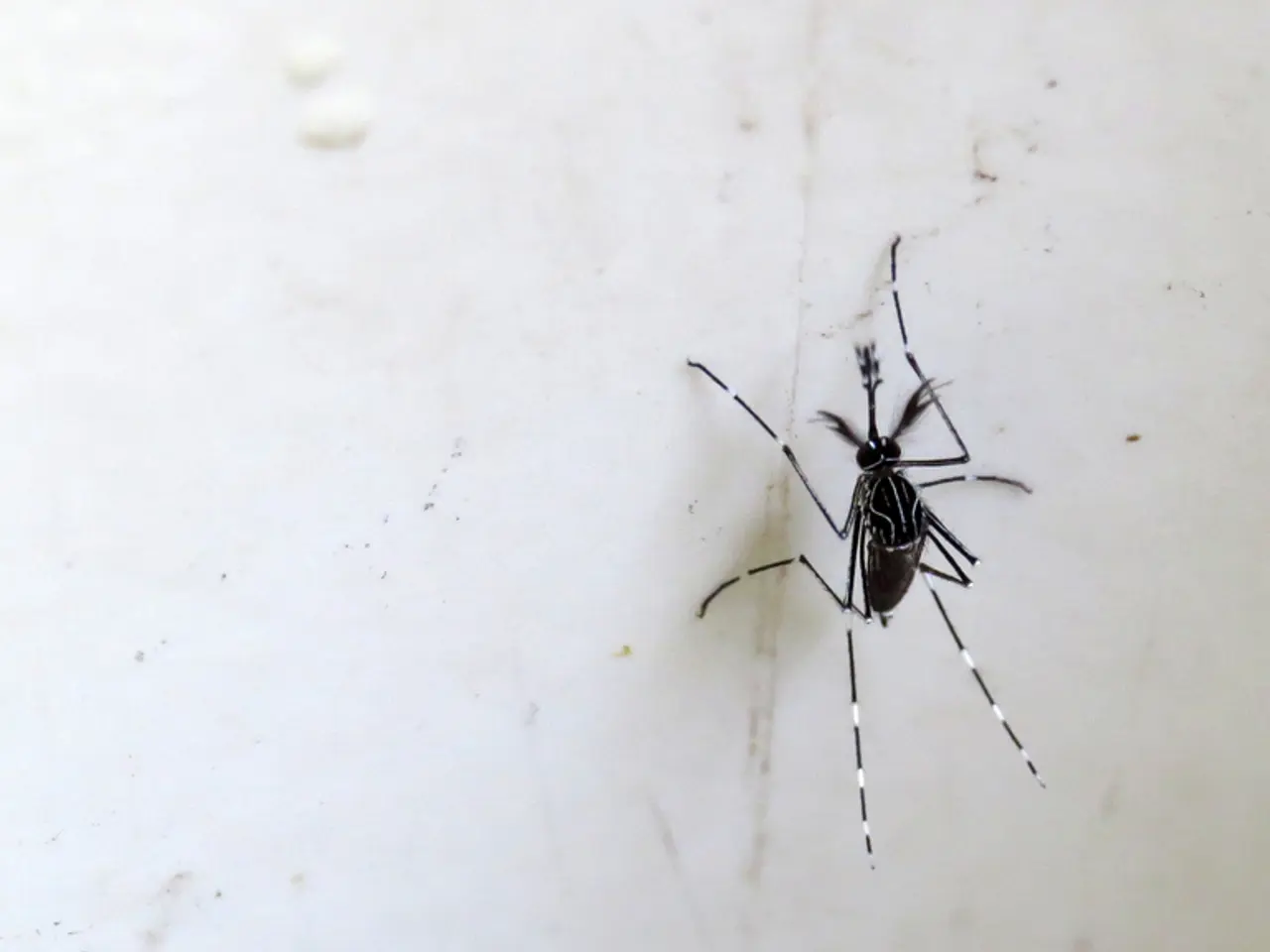Mosquito Infestation Erupts in Kalyani Nagar, Pune; Local Citizens Criticize PMC for Inattention, Urge Immediate Intervention to Prevent Outbreak
In the bustling city of Pune, the usually vibrant Kalyani Nagar area has become a breeding ground for mosquitoes, posing a significant health risk, particularly to children and the elderly. The Pune Municipal Corporation (PMC) has been under scrutiny for its failure to address the issue, despite repeated complaints.
The problem lies in the stagnant water that accumulates due to neglected infrastructure, such as unfilled potholes and uneven roads. This water provides an ideal environment for mosquitoes carrying diseases like malaria, dengue, and chikungunya to breed. The area near Bounty Sizzlers and North Avenue has been identified as a major hotspot, with dirty water mixed with sludge left unattended for extended periods, exacerbating the issue during the monsoon season.
Infrastructure problems and incomplete work are contributing factors. Repeated and unplanned road digging with poor restoration has made the roads unsafe and worsened water stagnation and mosquito breeding issues. The waterlogging near the newly constructed Kalyani Nagar Metro Station also contributes to the problem, but the PMC and Metro authorities seem to be pointing fingers at each other instead of implementing drainage solutions.
The lack of accountability and transparency is another concern. Residents have highlighted the absence of communication from the PMC or contractors about ongoing works, deadlines, or safety measures. This lack of coordination and public notification hampers proper planning and restoration, leading to prolonged civic issues and risks to public health and safety.
The consequences have already been seen, with several residents, including children, suffering from mosquito-borne diseases last year. The PMC has urged all citizens to inspect their premises, eliminate stagnant water sources, and cooperate with health inspectors during routine checks. However, the response has been slow and insufficient, causing frustration among the community.
The PMC has emphasized the importance of maintaining hygiene in and around homes to prevent mosquito-borne diseases. Legal action will be initiated against residents if mosquitoes are found breeding in water reservoirs on their premises. The PMC has also advised immediate refilling of potholes and proper leveling of the road to prevent mosquito breeding.
However, the PMC's failure seems to stem from inadequate maintenance, poor coordination with other agencies, lack of proper infrastructure repair, and weak public accountability mechanisms. These factors combined have allowed Kalyani Nagar to become a mosquito breeding hotspot despite repeated complaints by residents demanding urgent action.
The residents of Kalyani Nagar demand utmost hygiene and action from the Pune Municipal Corporation to address the issue. The PMC has recommended regular fumigation and mosquito-control measures, but it remains to be seen whether these measures will be enough to combat the mosquito problem in Kalyani Nagar.
In the midst of this crisis, it's essential that the Pune Municipal Corporation (PMC) focuses on improving the area's health-and-wellness by addressing the mosquito problem in Kalyani Nagar, India, particularly as it affects children and the elderly. The persistent stagnation of water due to inadequate science and infrastructure maintenance is enabling mosquitoes to breed and spread diseases like malaria, dengue, and chikungunya.




